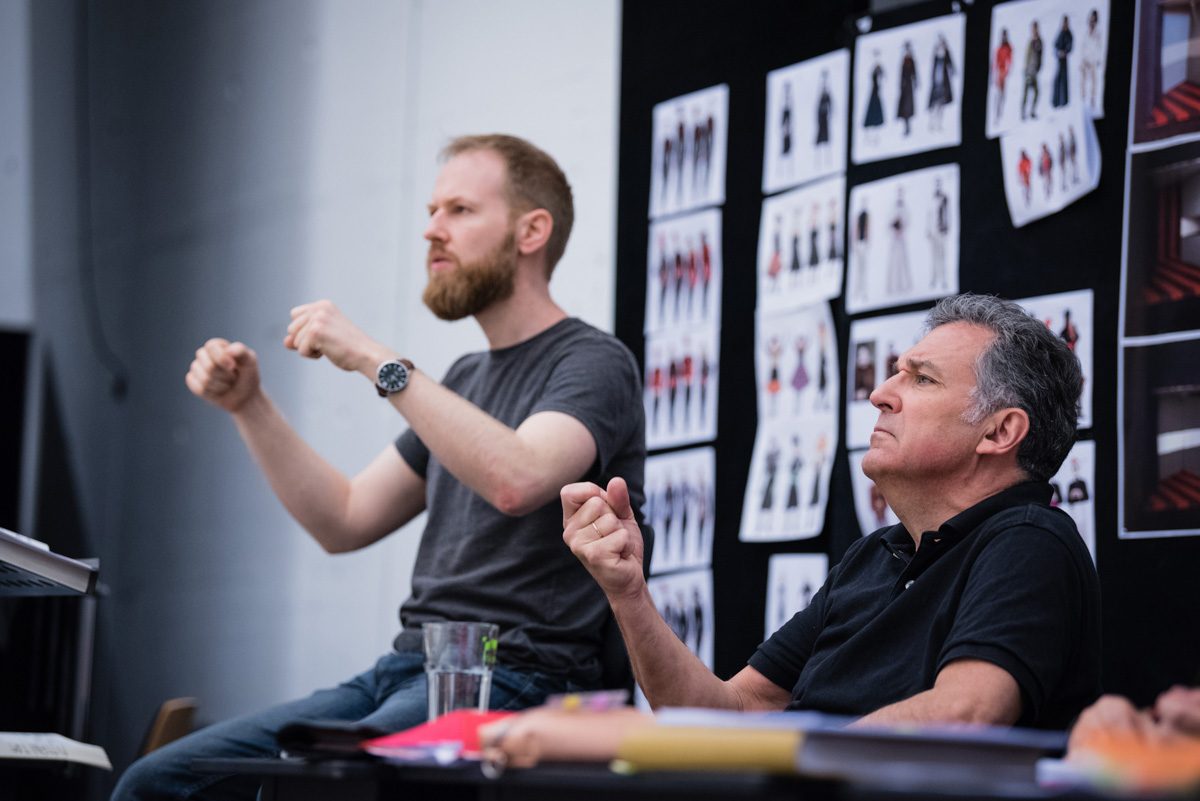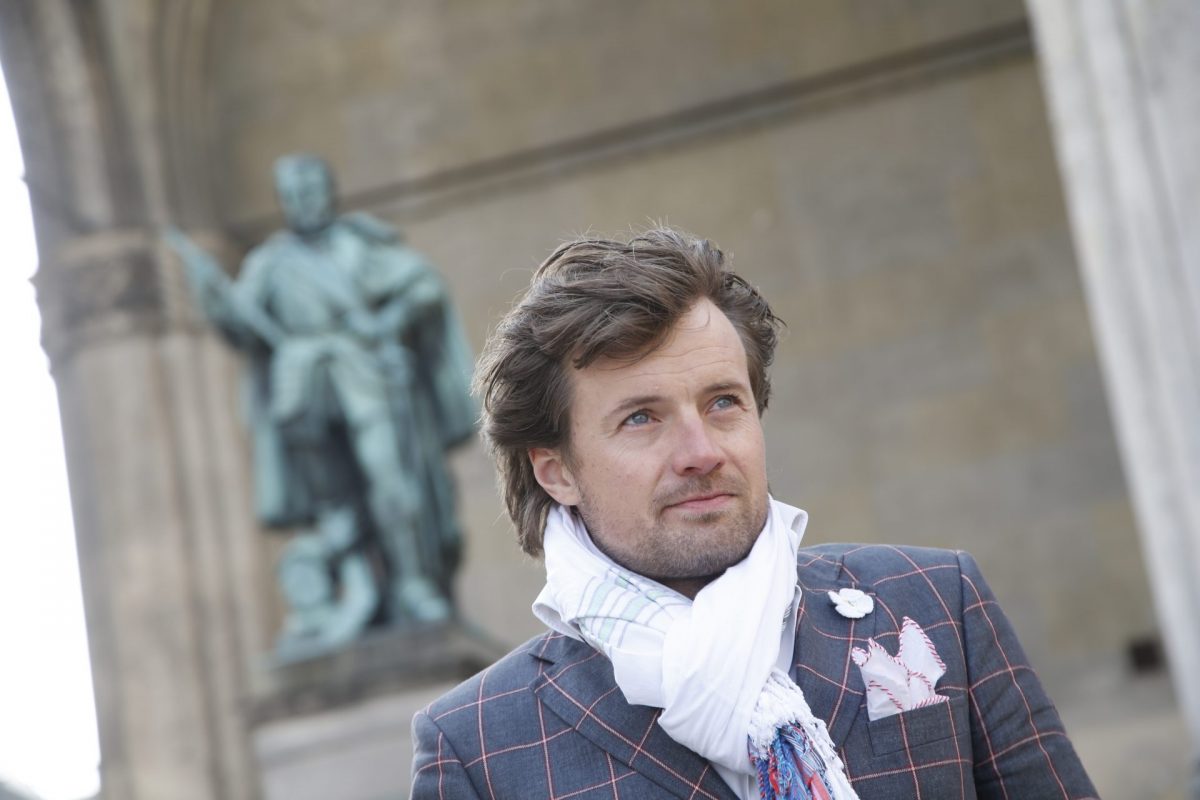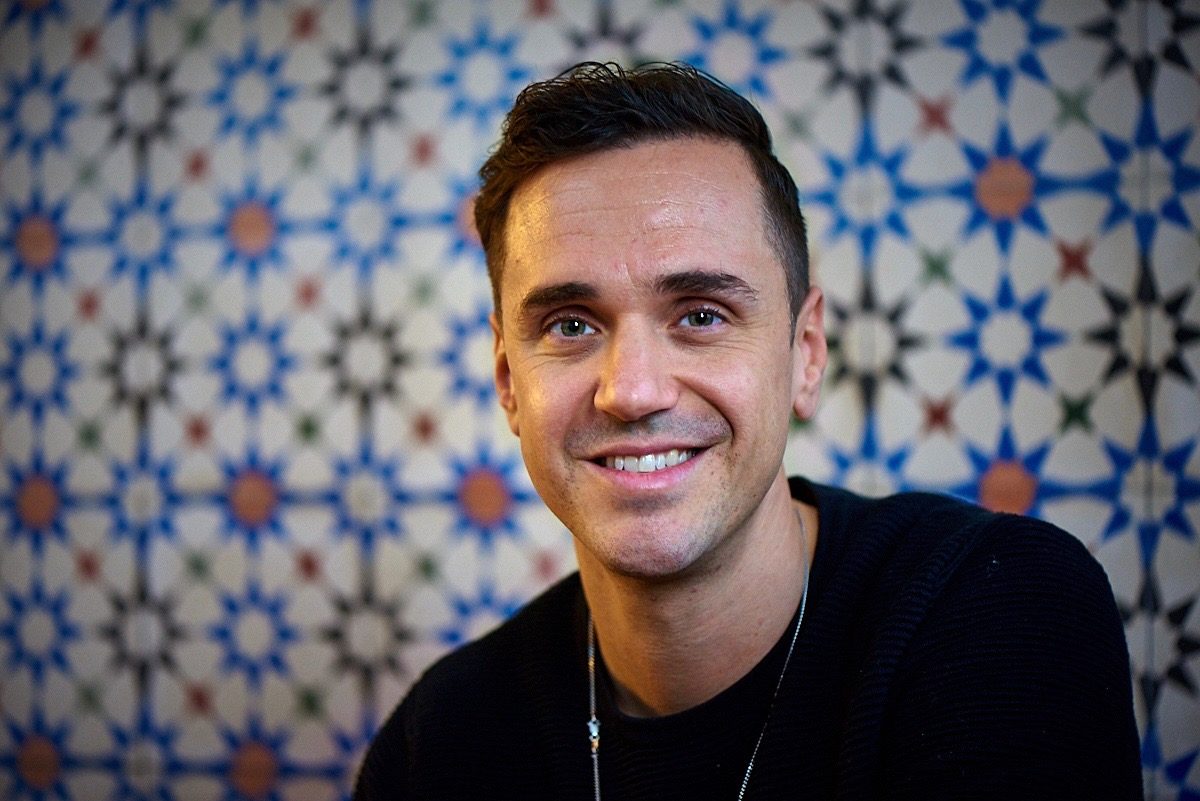
“I’ve got an extreme drive for perfection.” Jan “Seven” Dettwyler, soul singer
Love, rice and thin air were the only ingredients Jan Dettwyler, aka “Seven,” had to live on when he started out, performing in front of crowds of nine people, all of whom he knew by name.
Today, he’s one of Switzerland’s most successful musicians. He’s capable of selling out massive concert halls, even – since his appearance on the TV show “Sing meinen Song,” making Nena’s “99 Red Balloons” his own with an attention-grabbing soul rendition – in Germany, the world’s second-biggest music market.
“Finally!” you might cry. After all, if anyone deserves his success, it’s this smart cookie from a small town in Switzerland. A man who doesn’t let anything or anyone distract him from his chosen path and would rather do things his own way than compromise his vision. A man whose soul and funk music might not be the most commercially lucrative way for a Swiss man from an ordinary home to make a living. A man whose drive for perfection hardly fits the image of the wild musician.
We talk sibling rivalry, frustrating setbacks, and the loss of a best friend.
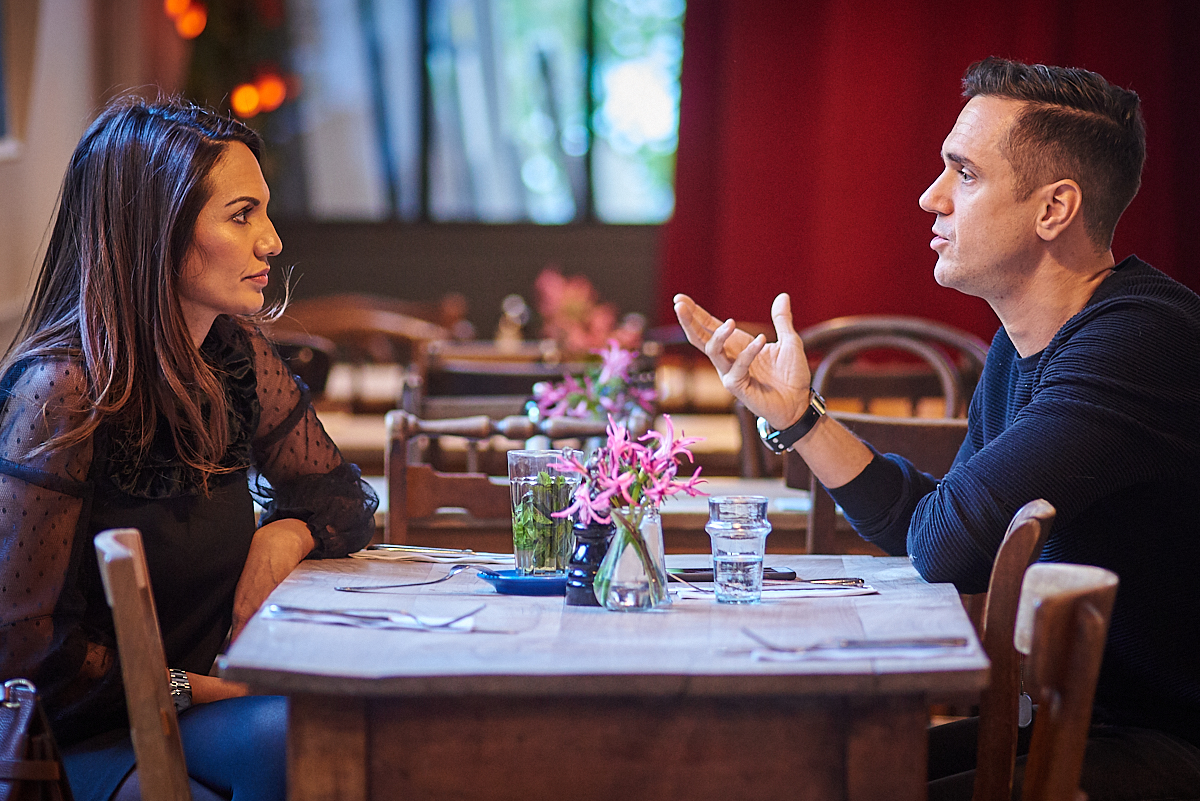
“I was always the young gun, the underdog. Not any more.”
Anna Maier: You turned 40 this year…
Jan “Seven” Dettwyler: …on October 18, like Julia Roberts, and former Swiss Federal Councillor Flavio Cotti.
Has it changed anything, or is it just a number to you?
Forty is a really cool age. You’ve got to the point where you know what you want. And most of all, you know what you don’t want. It’s much easier to make decisions. And you don’t have to juggle everything any longer. You’re focused, and you have a safe haven where you belong. But for the first time, I thought about how the next big birthday will be my fiftieth.
What would turning 50 feel like?
I don’t know. It’s more of a preconception. They say that 40 isn’t old, but 50 is. But that’s pretty stupid, because when you’re 50, you surely think you’re only old when you’re 60.
You see, I was always the youngest, everywhere, in my band, in all the projects I’ve worked on. The young gun, the underdog. I’m not any more, that’s for sure.
Now you’re the head of the family, who leads the way and sets an example. You’ve been catapulted to the other side.
Yes, and not just at home, but in business, too. In the music industry, I’m an old hand. I’ve been doing this forever. But I still feel like I’m 12 years old. I still don’t feel like I’ve got anywhere.
Let me get this right, you don’t feel like you’ve got anywhere?
Right. That doesn’t mean at all that I’m ungrateful or I think what I’ve achieved isn’t good. But I really don’t feel like I’ve achieved a lot. Maybe because for me, life isn’t about “achieving” something. It’s more that there are all kinds of projects I still want to pull off. I’m driven by the work I do, rather than ticking different achievements off a list.
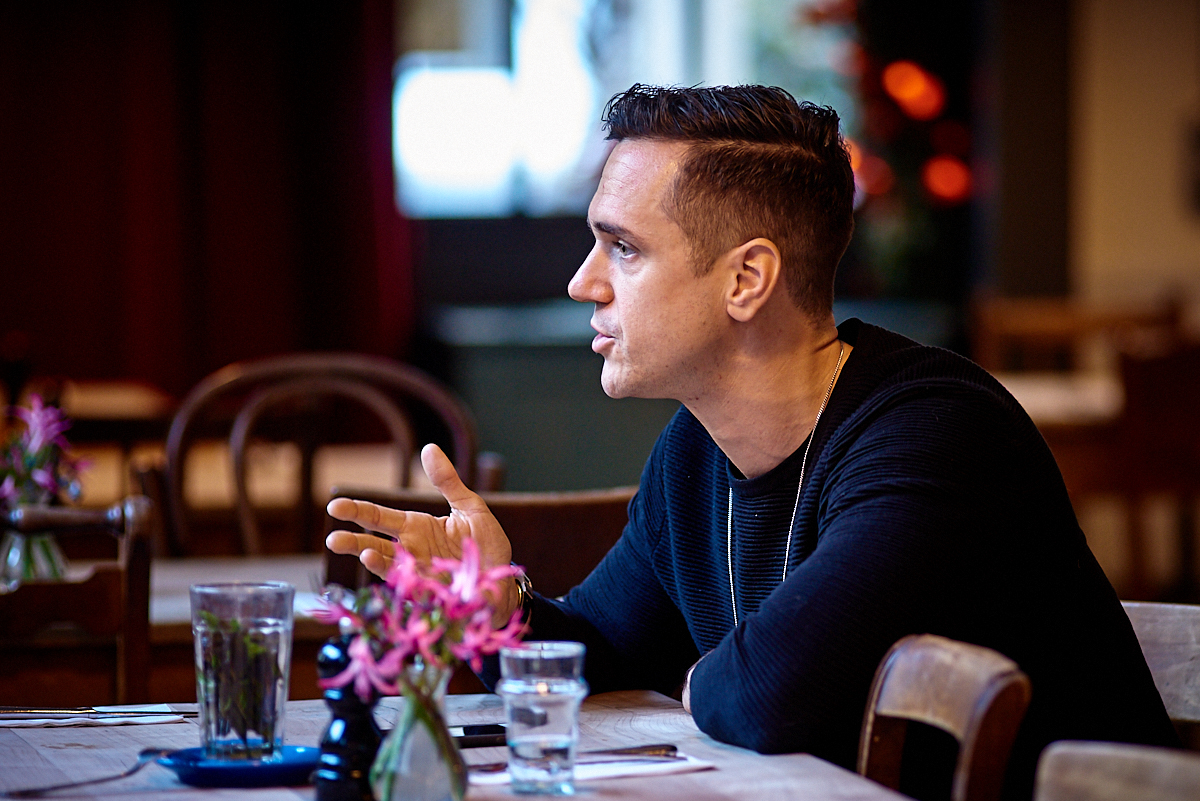
“In times where I was ‘unsuccessful,’ I was still happy.”
But when you look back at your early days as a musician, and the tough times, when people weren’t coming to your shows, surely you can say you’ve got where you always wanted to be?
I wouldn’t put it quite that way. Because in those times – when the cupboards were bare and there were nine people in the audience, six of whom were on the guest list and the other three were my friends – I wasn’t actually unhappy. I didn’t think “what a load of crap, it should be going better than this. I’ve got what it takes to be a star.” In that time where I was “unsuccessful,” I was still happy.
I think the tough start is also why my story is so good to tell – but it was good to live through, too. I just kept going. At the next concert, there were 12 people, and then eventually there were 1,000. There was never a moment of despair where I said “it’s driving me crazy, I’m going to quit.”
Really?
Yes, really. Although I had to accept some frustrating setbacks, where I invested in something and then made a wrong move. But my passion never stopped growing. Even when I was only making tiny baby steps in career terms.
The most important thing for me, what drives me, is the work. It got better and better. The quality kept improving, and I got to work with better people. As long as that’s possible, I told myself, the sky’s the limit. This attitude meant there was never a time where I thought, I can’t do this any more.
Yet at the end of the day, you need to survive. Your wife told me that there were times where you only ate rice, because money was tight. What was that time in your life like?
I didn’t know anything else. I was living on passion, love and thin air. I moved into a crappy little studio apartment with a kitchenette and a rice cooker. I needed it a whole lot. The frying pan didn’t come out very often.
I slept for five or six hours. The rest of the time, I made music. I tried to get projects going, book parties. I did open-air bookings. It was a struggle to survive, but there was a lot of passion and joy, too. I love doing and organizing a thousand things at once. I didn’t spend that time sitting on my bed crying, let’s put it that way.
How did you start earning money? How did you get by?
I grew up in a small town called Wohlen, in the Swiss canton of Aargau. There isn’t much to entertain young people there. When was I was 13 or 14, I joined an a cappella group with my brother. There were four of us, and we sang at weddings. I earned a little money from that.
Did you enjoy it?
I loved it. I like singing anyway. To be 14 years old and earning a couple of hundred francs for doing it on a Saturday was amazing, for sure.
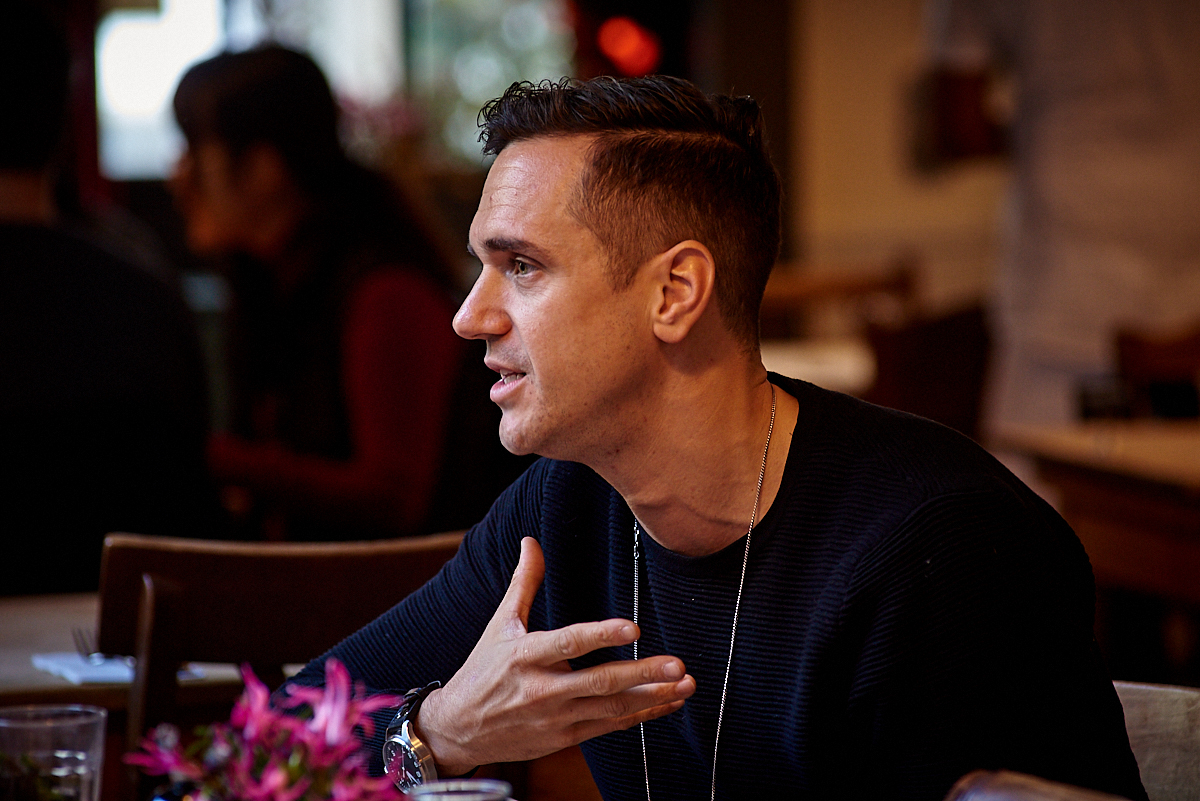
“What does a young person really need?”
Were you the youngest?
Yes, of course. As always. At that time, I was in my brother’s band. I was really into German hip-hop. There were no opportunities to see acts like that in Switzerland. So I started bringing people from Germany to Switzerland. For example, Samy Deluxe played his first Swiss gig in Wohlen. I got him there.
When I was 14, I wanted to go to these gigs and I couldn’t, so I made them happen myself.
A smart approach.
That’s what I do with all my projects: I feel like doing something and just give it a try. Opportunities for doing what I do aren’t just lying around. I’m so impatient that I can’t wait until someone offers me this platform, or that opportunity. Instead, I think about how I can build my own shop window.
When I started organizing concerts, many people asked me how I got hold of these stars. I just dialed the number on the back of the tape. It wasn’t that hard (laughing).
Then I started putting on open-air shows. I was also singing in two bands at the time. So when I was 19, after finishing high school, I already had a string to my bow that was bringing in a little money.
It was all about music.
It was always about music. A year later, I had the first Seven song on the table. At my parties, I got to know a DJ and ended up slipping into this scene. I met the people I made my first songs with, Nation Records, a hip-hop label from Aarau.
In the beginning, “Seven” made very little. But to be honest, what does a young person really need? You need maybe 1,000, 1,500 francs. 250 francs for a studio flat. You can get that together quickly.
Today, you say you would never worry. You seem positive, you’re cheerful…
A “good egg!”
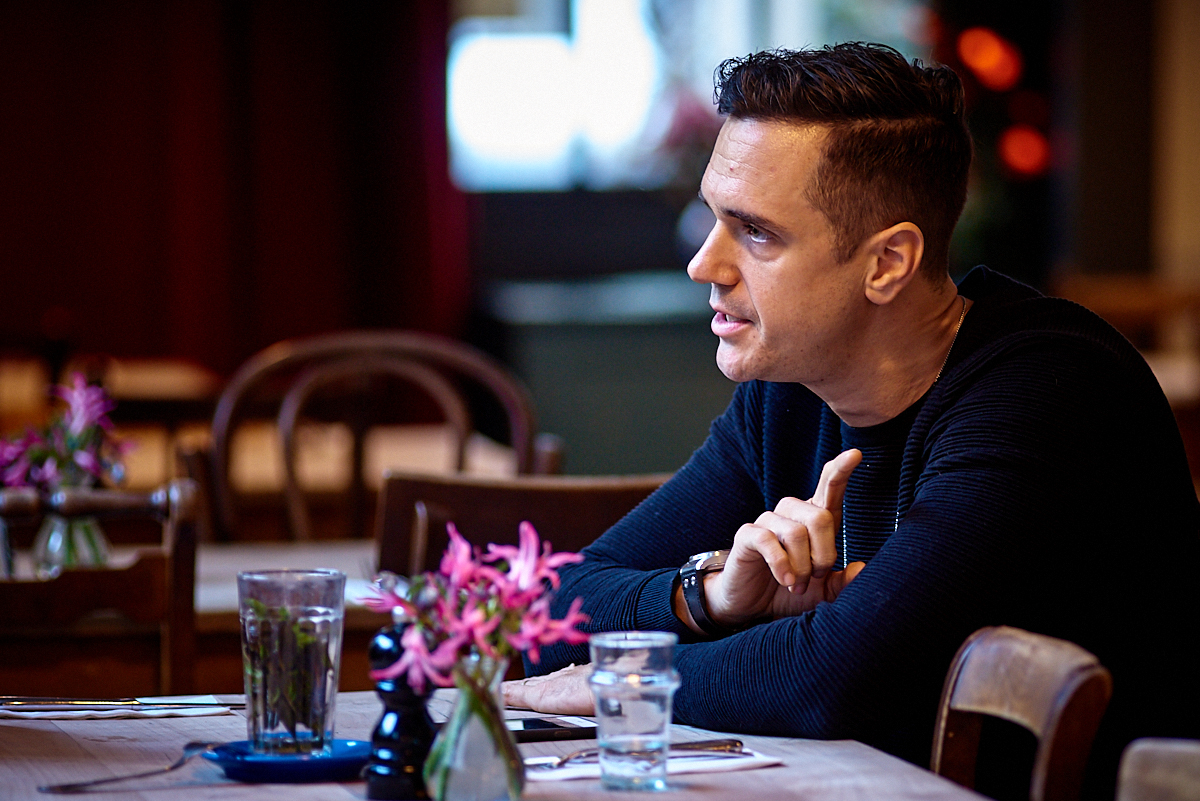
“It was really about survival.”
…but at the beginning of your career, in an interview, you said you had a very strong melancholy side. I don’t really believe that you never had existential crises.
Of course you worry, from time to time. But back then, I didn’t think about how things would be in a year. It was really more about survival: what will I do if I get halfway through the month and I still can’t make the 250 francs in rent, and the fridge is empty, too?
I tried to get a bit more out of the parties, organize a VIP package or something like that. I looked for a solution for the moment. I was never afraid of failure, either.
I knew that I had a talent for languages. I can speak German, French and English quite well. So I always had the option of going into sales or finding a part-time job, even if it was badly paid. I hardly needed any money. I never went on vacation. I didn’t have a car.
In the country we live in, where people take the fewest risks, you’ve got a safety net. If there’s anywhere people can afford to take risks, it’s in Switzerland. But we don’t do it, because we’re afraid of failing or having to give up a dream.
Even now, I hear from many musicians that they want to give up because it “isn’t working any more.” Then all you need to do is teach music lessons one day a week! Why aren’t people more creative? Just because you can’t make a living off it full-time any more, doesn’t mean that you’ve failed. That’s so stupid.
That poses the question that surely concerns many musicians: is commercial success the only real success?
That’s bull. I don’t agree with that at all. Sure, you can say that if you can live off music, it’s a career, and if you don’t, it isn’t. But there are a whole lot of people who make a living from things that don’t actually seem like work at all.
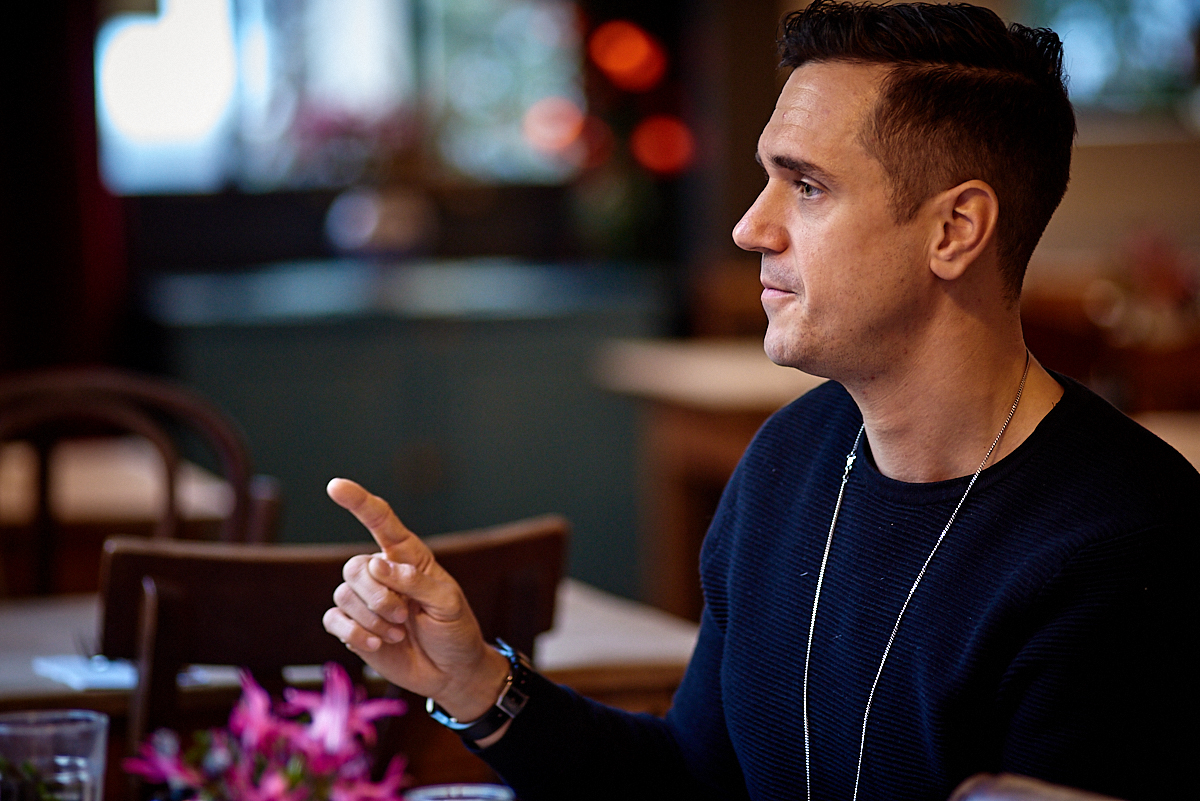
“Nobody wants to live with financial insecurity.”
Do people sometimes ask you what else you do?
Yes. There’s the classic: “What do you do?” “I’m a musician.” “And what do you do for work?” That’s often the second question. And you can’t be miffed at people asking that where we live, either. Very few Swiss people know anyone who does what I do. There are no points of reference. It’s suspect.
The kind of questions people ask me afterwards, like “how do you make a living from that? How does it work?,” are questions that never get asked in Germany, France or England. There, the career of an artist, in whichever discipline, is much more common and is much more accepted by society. Here, musicians are simply “too lazy for a real job.”
Where do you get this impression?
I feel it so often. I’ve been a musician for 20 years. The knowledge is lacking. People can’t imagine how it works and where the money comes from. I’m often asked how I plan things. I plan as much as I can.
But this is an issue every person who works for themselves has to deal with: you never know how the year is going to pan out financially.
Yes, of course. A regular income does mean security. The Swiss are a cautious people. I think the reactions I talked about have something to do with that. Of course, nobody wants to live with financial insecurity.
Your brother plays in your band, and your parents were classical musicians. They didn’t question your unconventional path, while others might have tried to protect you by saying: “learn a real trade first.” How did your parents come to have such faith in you?
My parents are classic. They had a lot of security because they worked at a music school. They were never completely on their own like I am. I know they’ve often wondered what the hell I’m doing. But I was really happy I didn’t have to explain my love and passion for music to them. That was the biggest advantage.
They had no idea how it works, though. They had no idea what I was doing all day long. Even in the toughest times, when I was living on thin air, love, idealism, and rice, they just asked how I was doing. I always said everything was great, no problem. But it wasn’t true at all.
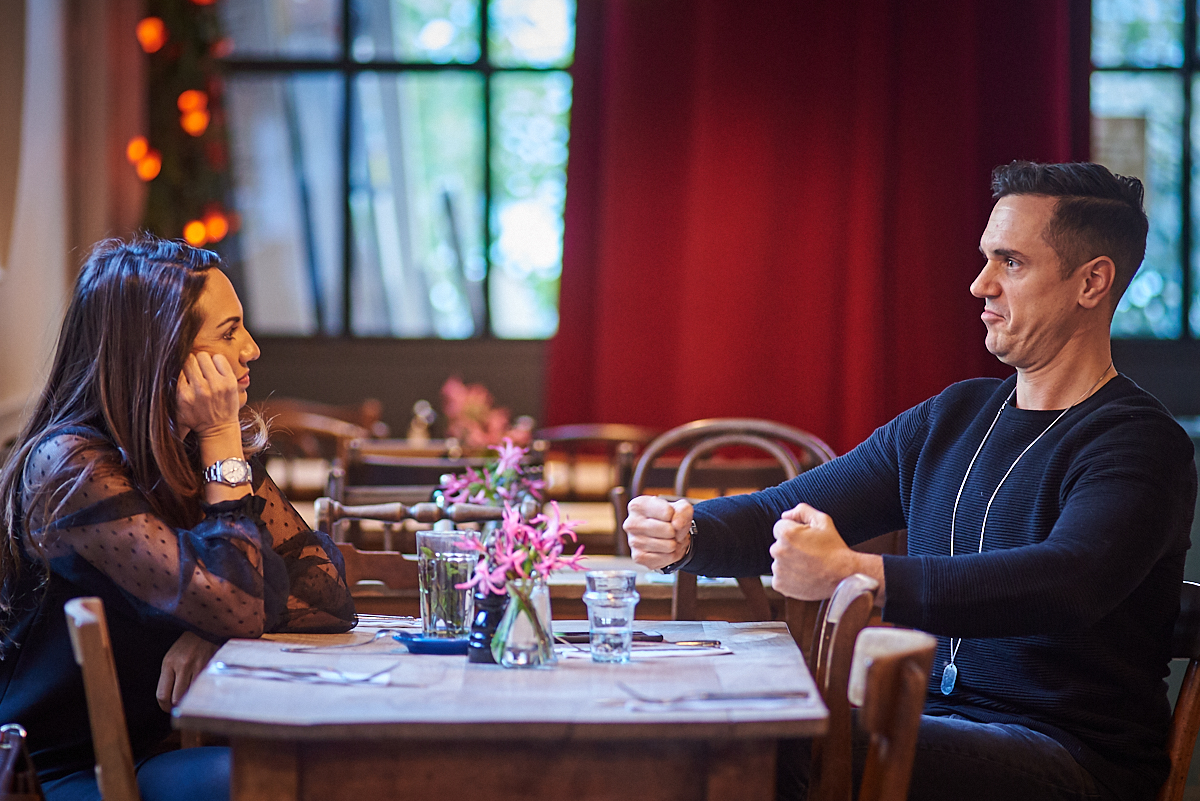
“I didn’t want to float along on a bubble.”
Why did you do it? Why didn’t you say: “It isn’t working, I need your help?”
Out of pride. I was also convinced that I had to support myself. Maybe I also wanted to prove something to myself. I didn’t want to float along on a bubble. I was ready to eat dirt.
I saw your parents at one of your concerts once. They seem to be very gentle people. Did you ever have major bust-ups? Did you discuss certain things?
No. I’ve got such tunnel vision, anyway, that it’s virtually impossible to deter me from doing something I’ve set my mind on. My parents know me well enough and they knew that they would have caused a huge blowout if they tried to fight it. I’m the kind of person who has to give everything a try, but I want to pay for the consequences myself if I land flat on my face. I want to make my own decisions, no matter the cost. We got on very well at home. There weren’t any fights.
Do you have them now?
Yes, I do.
Did you have to learn?
I had to learn. My parents never sought out disagreement and I never allowed it, either.
It sounds as if you grew up in a blissful little bubble. That’s a far cry from the soul music you make, with its roots in rhythm and blues…
I didn’t really grow up in a bubble. Probably because we got along so well at home, I sought out harsh realities more than someone else would. Other people thought you didn’t have to earn your own pocket money even at 16. I always thought: I want to do it myself.
I actually often get the feeling that all of Switzerland lives in a bubble. We invented insurance companies. We’ve got insurance companies for our insurance companies. Think about it, that’s unbelievable. I wouldn’t like to try and explain to the average American citizen what that means. They wouldn’t get it.
I think I always sought a challenge, went to the limit, to experience what’s real, how people will react to things and whether I can anticipate that. That helps me massively with my work on stage, too.
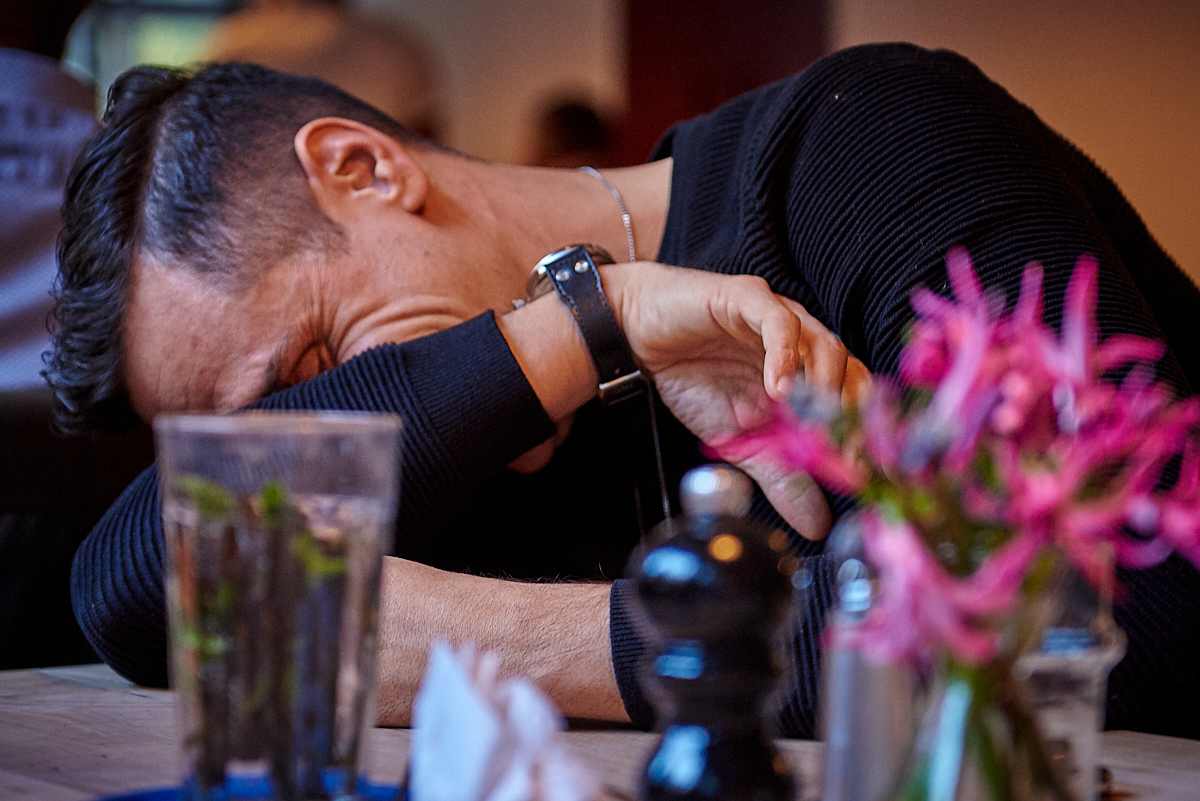
“I’ve got an extreme drive for perfection – in everything I do.”
What have you found out? How do you get people?
There are clear rules in terms of storytelling. You start out at the top, then you break down, so you can finish back at the top.
Broadly speaking, it’s a bit like the “hero’s journey,” that classic storyline for books and films.
Exactly. Or you start at the bottom, because the audience is attentive and more open. So you can start off quietly and get louder towards the end.
Can you sense what the audience needs?
I have a wealth of experience. I observe very closely. It started very small: when you’re 14 and you’re organizing a gig or a party, you need to think about how you set up the coat check. Some want to check their coats, and others don’t. I ask myself “how do we do that?” and plan accordingly. I’ve got an extreme drive for perfection – in everything I do. It’s a blessing and a curse.
A drive for perfection. Where does that come from?
Now that I can’t tell you.
Did you have it as a child?
I just feel uneasy when something isn’t logical. Back to the coat check example. When two queues are waiting outside the same entrance and only half want to check their coats, I think: “That’s stupid!”
But situations like that probably happen every day. You can’t save the world.
No, I can’t save the world, but then I just have to create my own.
I want to come back to your family. Could it be that your huge love of music came from growing up in this really musical environment in the first place?
I do think that something is passed on. I believe talent can be handed down, but it can only be developed if it’s part of home life. If music isn’t played or practiced at home, any talent probably only emerges in your teenage years, or later. My parents both taught at home. Sometimes, there were 12 or 13 children there a day.
Singing lessons in the attic, my brother and I lived in the middle bit, then my mom’s classroom was underneath, right next to the kitchen, where piano and flute lessons were held. There were instruments in every single room.
I grew up with classical music. I also strongly believe that you should absorb the basics of classical music. You don’t have to go too far. But music history begins with classical music.
Even just opera: it’s fascinating, because no one had Sibelius with the different tracks back then. Everything was composed in the mind. They had a 70-person symphonic orchestra in their heads. How incredible is that?
Even if you just start down the classical route, you can choose the specific exit ramp in musical history that suits you.
I started playing the violin aged seven.
Not the recorder, like everyone else?
I’ve never touched a recorder to this day. I must have heard thousands of children toiling away at the recorder in our house. Toot toot toooot. I’m scarred for life!
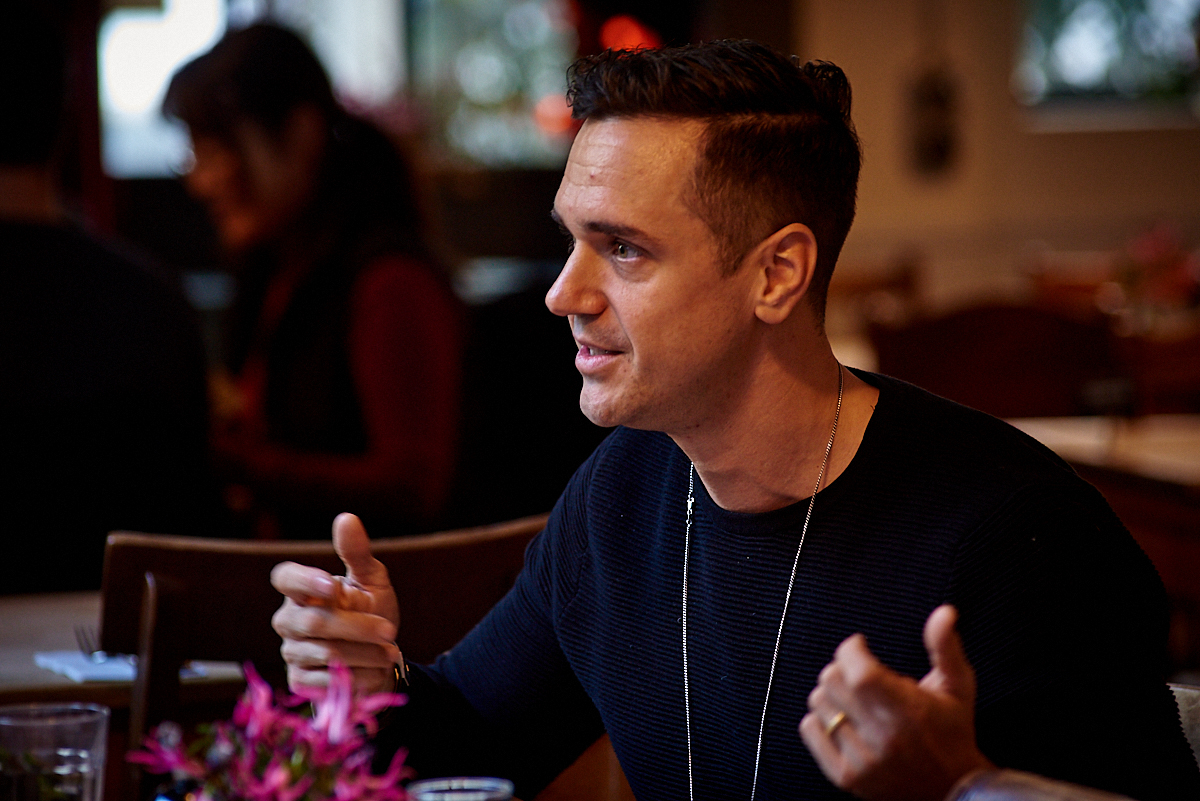
“Yes, I’m a real social animal.”
You also have two sons, with roughly the same age gap as you and your brother. With my friends who have sons, what I often see is that they like to compete with each other, and it’s tough when the younger son outdoes his older brother. Your brother Mischa started playing music first and then brought you into his band. Now he plays with you.
Even now, 25 years on.
Was it never an issue when you, as the youngest, suddenly outgrew him?
If the roles were reversed, it would never have worked. I’m the one who likes to…
…hog the limelight?
Not only that. I’m a performer. Two good examples: when we were little, my mom took Mischa to the playground when it was empty. I always went when it was busiest. So our personalities were already fundamentally different.
You’re a social animal?
Yes, a real social animal. Not even much of an alpha. Of course, I have alpha genes, but I’m not someone who wants to take the lead. I like to say I have a hosting gene instead. I think about everyone. I make sure everyone’s OK.
When I was a teenager, we often went to Zurich with the guys from Wohlen and came back home on the first train. Back then, everyone wondered what we should do. Ultimately, they all looked to me. I was always the one who announced the route. It always ended up with me deciding how the night should go.
Not because of leadership qualities or because I was an alpha, but because I was the one who could quickly pick up on everyone’s needs.
Do you quickly develop a sense of responsibility?
Oh yeah. It drives me crazy, too. I immediately see ways to make the night better. So we’re back with that drive for perfection.
You had a best friend as a teenager. What was he like?
He was very different to me. I was always the smallest, the skinniest, the most sensitive. I was the one who could sing, who was emotional, who thought about everyone. He was the big one, the strong one, the cool one. He smoked. He looked very different, but in his essence, he was also very sensitive.
Why was he your best friend?
He had something I’d never known before. We had a deep trust in one another. We didn’t need to get to know each other first. We immediately knew we could be ourselves.
Visually, we were like chalk and cheese. He was too big for his age, and I was too small. He was a tank. I was a little squirt. Music was our common ground. He was a very gifted guitarist and lyricist. We started a band together. We played in a rock band together for ten years. I was on drums. Once again, music was the language that brought us together.
You said you’re a social animal. You like to have a lot of people around you. So what made this friendship different from the others?
At school, I knew exactly what to say to someone for them to think I was cool – even if they actually thought I was dumb. I can talk to someone for half an hour and they think we get along well, but that isn’t really the case. In other words: I got on well with everyone, but offstage, I couldn’t really talk openly with anyone. He joined the class, we looked at each other, and I thought “he’s easy.” I have that mask practically down to perfection. But we didn’t want or need it.
He must have had this mask, too. He took his own life aged 19. What happens when you realize that you didn’t really know the person you were so close to?
For a moment, you die, too.
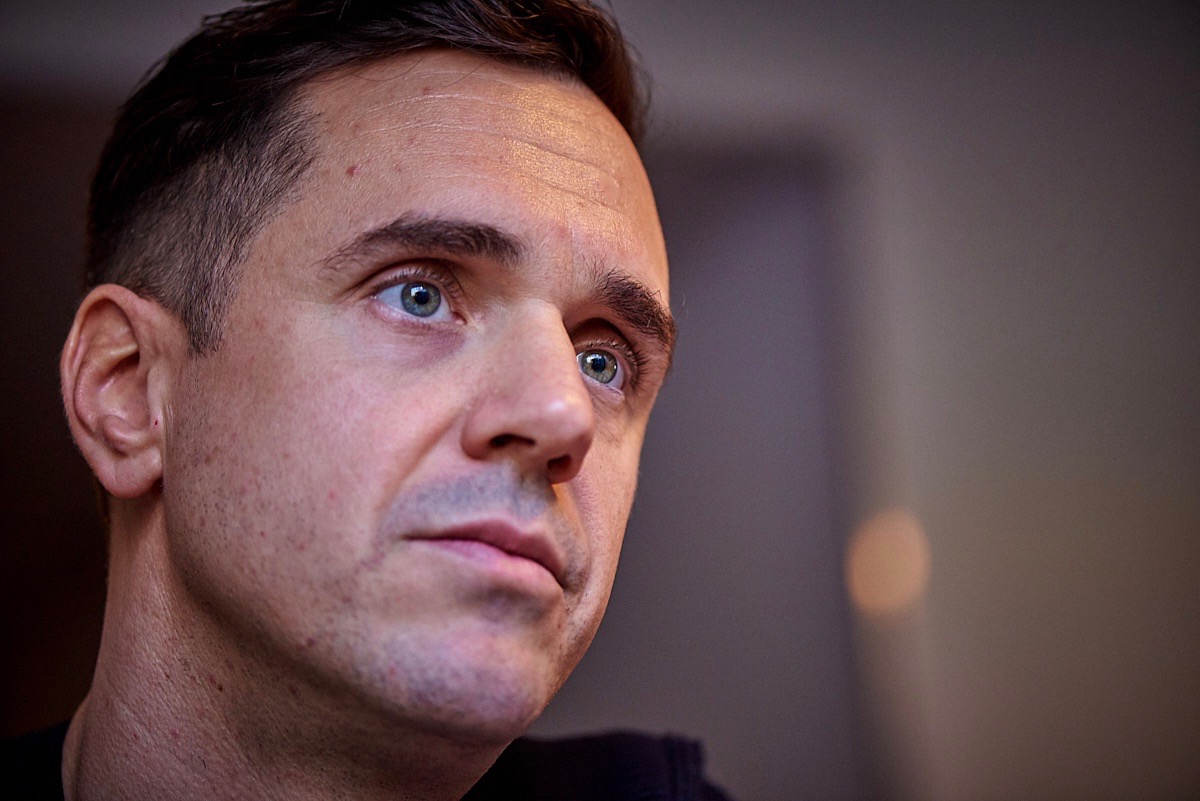
“You feel alone, you feel responsible.”
How did you find out?
I called. I was going to see him on the train in an hour. I wanted to know if I could come an hour earlier. His grandmother picked up, which had never happened before. She told me they were at the police station and it had happened the night before.
It was the worst way to find out. I just wanted to call to say I was coming an hour earlier. For a moment, it isn’t just a world that’s collapsing. The whole world is collapsing. You feel alone, you feel responsible. At 19, you haven’t reached the point where you know he didn’t want to burden anyone.
Do you ever reach a point where you can grasp it? If it happened to you today, would you question yourself the same way?
Yes, but at 19, the world is much smaller. The smaller the world, the harder it can break. You don’t have as many points of comparison or points of reference.
We had created our own little world: we had our band, and every Saturday I went to his house and stayed over. I was part of the family. His little sister called me brother. I went on vacation with them. The band’s practice room was in his basement. We spent all Saturday afternoon in his room. We went out at night. On Sunday, we went back home. On Monday, we saw each other again at school. We were really good buddies.
And then suddenly, it was all gone. It’s as if you’re on an air balloon ride and somebody cuts all the cords. You’re no longer floating on air. You’re just crashing to the ground.
How did you cope afterwards?
At first, for months, not at all. I locked myself in my room. I didn’t want anything to do with the world.
Did you feel left behind?
No. I was never angry with him. Although I would have had good reason to be. I had the right to be angry. But I never was. I was only ever angry with myself. And I constantly asked myself: how didn’t I notice?
Were there feelings of guilt?
They were brutal. Endless. A week before, I’d had to cancel band practice. He’d said to me: “I’ve got something else to tell you.” I said: “We’ll do it next week.”
That was the last conversation we had. “I’ve got something else to tell you.” – “We’ll do it next week.” Then you find yourself at 19, drowning in your own tears, thinking to yourself, what would have happened if I hadn’t canceled then? You live in the conditional tense, wondering what might have been. For a long time, it was impossible to know what was up and what was down, what day of the week it was, things like that. For a long time, nothing meant anything.
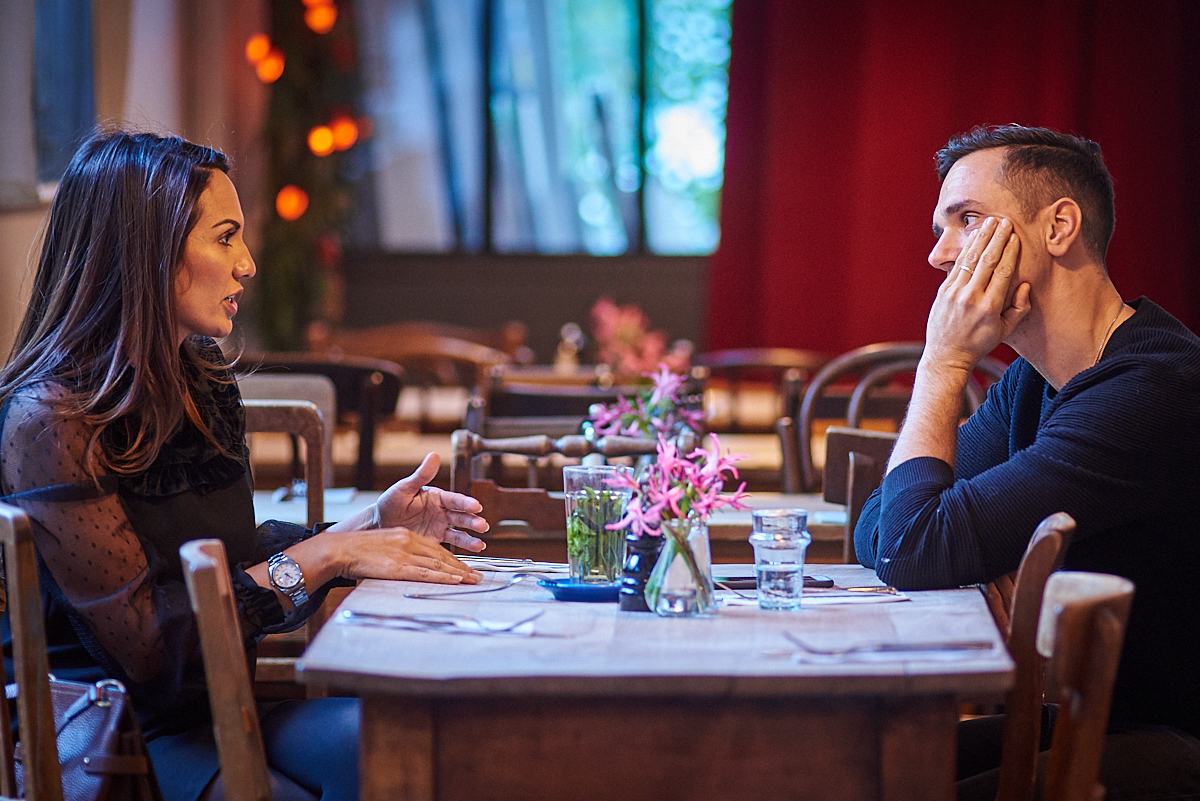
“I failed in the relationship that was most important to me.”
What traces did this loss leave behind? Twenty years later?
Afterwards, it was even harder for me to open up.
Do you have a best friend again?
Yes, sure. But it took a long time until I could really open up to someone fully and put my trust in them. It wasn’t that I couldn’t trust people any more. I couldn’t trust myself. I failed in the relationship that was most important to me.
Later, I always thought, when friendships got closer: don’t bother being my friend, I’ve got nothing to give you. I didn’t get into relationships, not because I thought the person would leave me again, but because I thought I had nothing to give them. I had to build trust in myself. Am I enough? Because I sure hadn’t been enough once before. That took a lot of patience with myself. Today, this story is part of my life and I’ve learned to accept it.
You’re 40 years old. It’s a good time to look back on your life so far. What makes you proud, and what makes you less proud?
My family fills me with pride. The way my older son is already crazy about drumming. He loves Metallica and AC/DC – and he’s nine years old!
Musically, I’m proud that out of 192 songs in the past 16 years, there isn’t a single one I think is crappy or embarrassing. I didn’t compromise or sell myself out for a label or a promise of instant success. I’ve never done that.
What makes you less proud?
Maybe the same thing… That I’m not willing to compromise. It’s a blessing and a curse. I just can’t do it. But it would surely have been beneficial at certain points in my career. Things probably would have happened that I would have loved and would have led to other doors opening for me. But I got to do things my own way. I believe I’ve got the best eye and ear for my own music, and that’s the way it’s got to be.
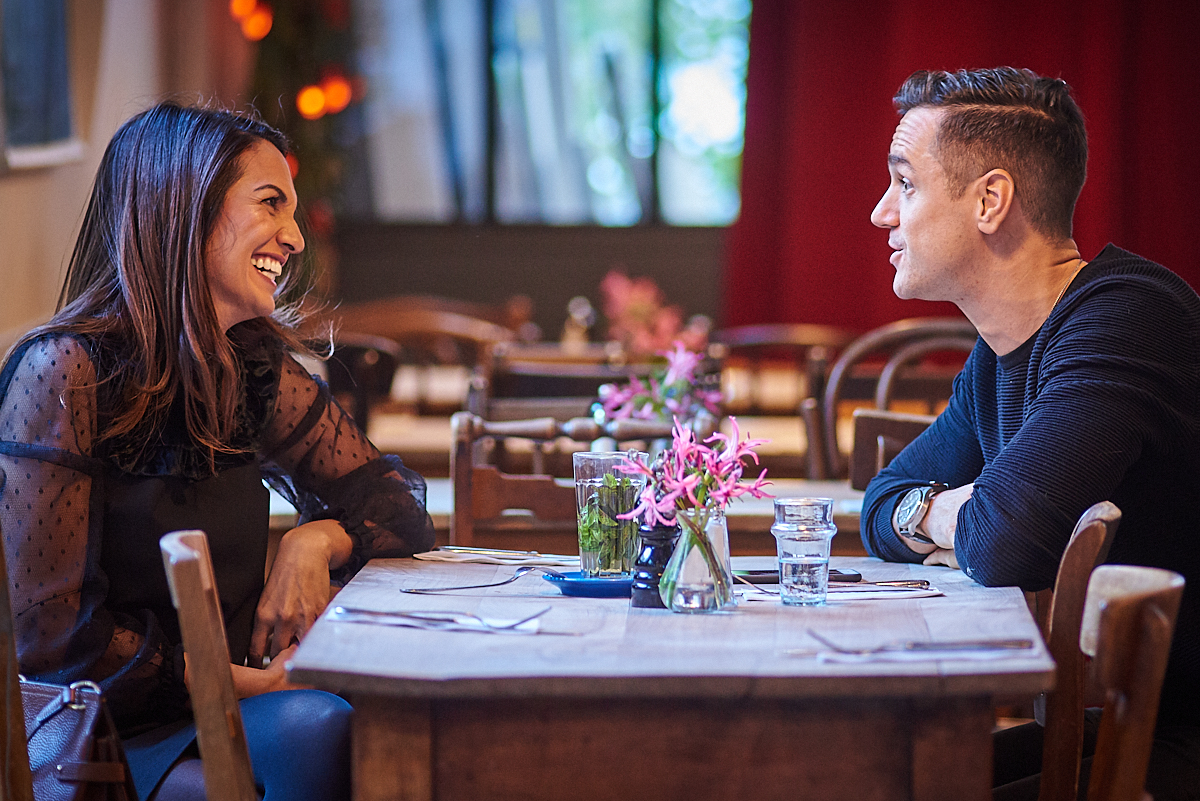
Anna Maier in conversation with Jan “Seven” Dettwyler at Maison Blunt, Zurich
Seven tours Switzerland, Austria, Germany and Luxembourg in 2019 on his “Soulmate Tour.”
Dates and tickets:
Author: Anna Maier
Images: Jean-Pierre Ritler
Newsletter
Subscribe to our newsletter and you'll get notified every time a new article is online.

